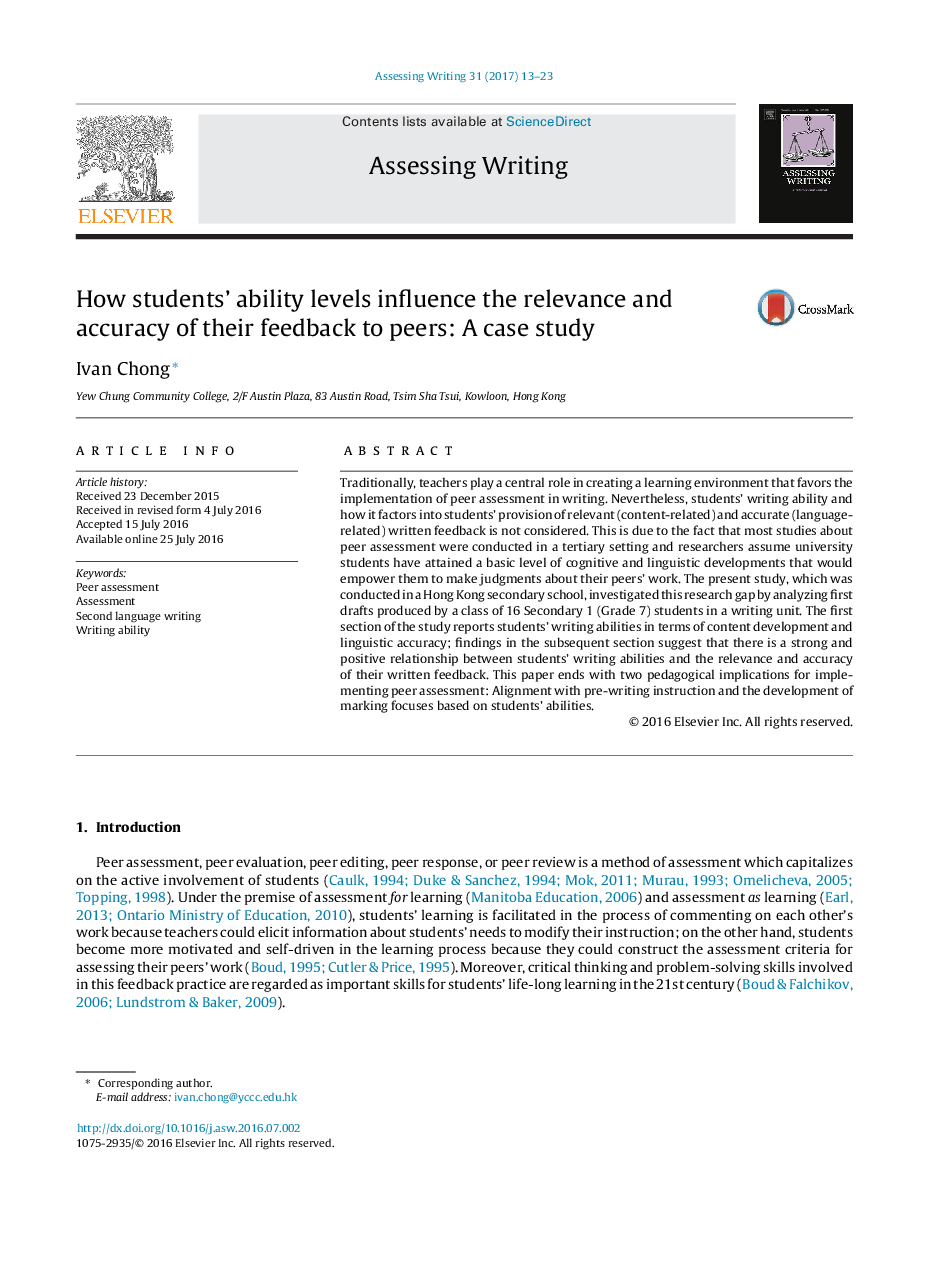| Article ID | Journal | Published Year | Pages | File Type |
|---|---|---|---|---|
| 4935758 | Assessing Writing | 2017 | 11 Pages |
â¢Students who developed ideas better asked more relevant questions.â¢Students who wrote with accuracy identified more target language errors.â¢Peer assessment is effective when aligned with pre-writing instruction.â¢Peer assessment is effective when students give feedback based on their strengths.
Traditionally, teachers play a central role in creating a learning environment that favors the implementation of peer assessment in writing. Nevertheless, students' writing ability and how it factors into students' provision of relevant (content-related) and accurate (language-related) written feedback is not considered. This is due to the fact that most studies about peer assessment were conducted in a tertiary setting and researchers assume university students have attained a basic level of cognitive and linguistic developments that would empower them to make judgments about their peers' work. The present study, which was conducted in a Hong Kong secondary school, investigated this research gap by analyzing first drafts produced by a class of 16 Secondary 1 (Grade 7) students in a writing unit. The first section of the study reports students' writing abilities in terms of content development and linguistic accuracy; findings in the subsequent section suggest that there is a strong and positive relationship between students' writing abilities and the relevance and accuracy of their written feedback. This paper ends with two pedagogical implications for implementing peer assessment: Alignment with pre-writing instruction and the development of marking focuses based on students' abilities.
